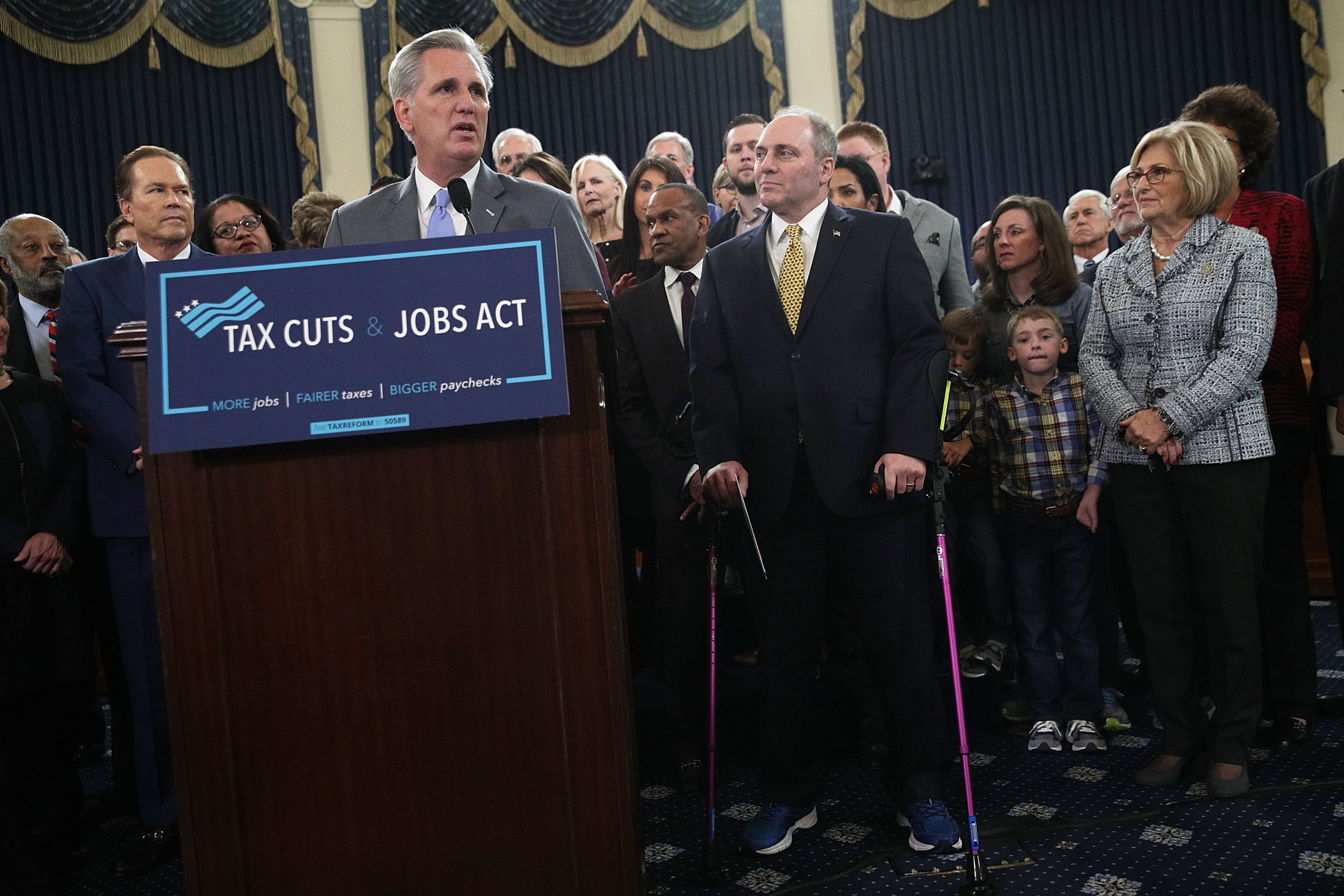Why the IRS may send you less money this year
The smartest insight and analysis, from all perspectives, rounded up from around the web

A free daily email with the biggest news stories of the day – and the best features from TheWeek.com
You are now subscribed
Your newsletter sign-up was successful
The smartest insight and analysis, from all perspectives, rounded up from around the web:
"Millions of people are getting hit with a surprise tax bill," said Matthew Yglesias at Vox. Twitter is aflame with outrage from early filers who typically get refunds and are instead finding they owe money for 2018, when the $1.5 trillion tax overhaul took effect. "We're paying $5,000 more in taxes for 2018. Imagine our surprise! We voted for you ..." said one typical tweet addressed to @realDonaldTrump. The truth is "somewhat more complicated." Yes, a significant number of people are paying more. The average refund check so far is down 8 percent — $170 — from this time last year, and 4.6 million more filers this year are expected to owe money. The issue here, though, is the refund, not the total tax bite. Historically, 75 percent of tax-payers have overpaid and gotten refunds. But starting last year the Treasury Department adjusted withholding amounts so that most people had less deducted from their paychecks. Many people who typically got refunds now face a bill instead. So instead of pleasing voters, the tax law has created a horde of angry citizens convinced they're paying more.
They're very likely not, said Jim Tankersley and Matt Phillips at The New York Times. "Independent analyses, including by the Tax Policy Center in Washington, project that the vast majority of Americans received a tax cut from the new law in its first year." Only 5 percent of filers are actually paying more as a result of the overhaul, and that includes high earners hit by the elimination of the state and local tax deduction. But fewer people claiming refunds has implications for the economy as well as for the GOP. Refund season typically brings an "injection of cash into the consumer economy," with Americans directing the money, which last year averaged around $2,800, toward purchases like cars and vacations. Economists bank on this, and many had anticipated especially healthy spending this year thanks to the tax cuts.
The Week
Escape your echo chamber. Get the facts behind the news, plus analysis from multiple perspectives.

Sign up for The Week's Free Newsletters
From our morning news briefing to a weekly Good News Newsletter, get the best of The Week delivered directly to your inbox.
From our morning news briefing to a weekly Good News Newsletter, get the best of The Week delivered directly to your inbox.
There's one category of people who've definitely gotten a boost from the Tax Cut and Jobs Act, said Richard Rubin at The Wall Street Journal: tax lawyers and accountants. For them, "business is unusually strong and should remain robust for years." It's an ironic coda to years of promises to simplify the tax code. "What we've got," says tax expert Pamela Olson, "is a system that is even more complex than the old system." If, after all is said and done, you do expect a refund this year, said Michelle Singletary in The Washington Post, you can check its status at IRS.gov as soon as 24 hours after you file. And consider filing soon: You don't want that refund sitting in limbo, "in case there's another government shutdown."
A free daily email with the biggest news stories of the day – and the best features from TheWeek.com
-
 The ‘ravenous’ demand for Cornish minerals
The ‘ravenous’ demand for Cornish mineralsUnder the Radar Growing need for critical minerals to power tech has intensified ‘appetite’ for lithium, which could be a ‘huge boon’ for local economy
-
 Why are election experts taking Trump’s midterm threats seriously?
Why are election experts taking Trump’s midterm threats seriously?IN THE SPOTLIGHT As the president muses about polling place deployments and a centralized electoral system aimed at one-party control, lawmakers are taking this administration at its word
-
 ‘Restaurateurs have become millionaires’
‘Restaurateurs have become millionaires’Instant Opinion Opinion, comment and editorials of the day